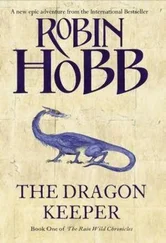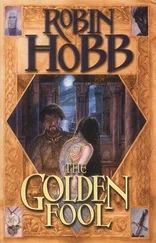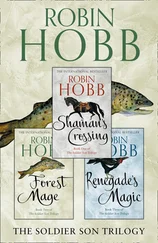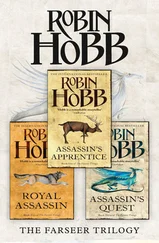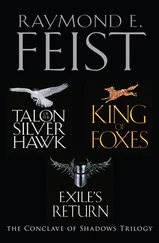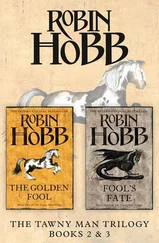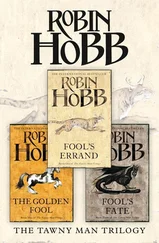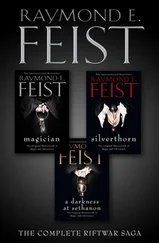‘That I would, sir,’ and a faint blush of pride crept into Spink’s cheeks that my father would know his father’s name.
‘He was a fine soldier. I served alongside him in the Hare Ridge campaign. I was not with him at Bitter Springs, but I heard how he died. He was a hero, and you should be proud of his name. Your mother, Lady Kester, does she fare well?’
I think Spink nearly gave a polite and untruthful reply. He took a breath and then said, ‘Things have been difficult for her the last few years, sir. Her health has not been good, and a dishonest overseer brought us to the edge of ruin. But he has met his justice, and my older brother Roark is learning the full running of our holdings now. I am sure that things will improve.’
My father nodded gravely. ‘And your father’s regiment? They do well by her and your family?’
‘Very well, sir. Lieutenant Geeverman escorted me here, to be sure I would arrive safely. My mother’s pride forbids that we rely on them too much. She always thanks them for their many offers, but tells them that her husband would, she is sure, wish to see his sons learn to stand well on their own in paucity rather than rely on the charity of others to live in comfort.’
‘I am sure he would, Cadet Kester. Just as I am sure you will bring honour to the name you bear. Hold to your father’s values and you will be a fine officer.’
I perceived then that my father had already known these things, but that by asking about them in front of us, he had given Spink the opportunity to share his family’s straitened circumstances without making it seem that he sought our pity. Only later did I learn the tale of his father’s death. Going to the aid of a wounded comrade, Captain Kellon Kester had been captured by the plainsmen. The tribe that took him was the Ebonis, well known for their utter ruthlessness toward any enemy. When Kester saw that he’d been drawn into a trap baited with his wounded comrade, he shouted to his fellows not to come after him, no matter what.
Even the Ebonis honoured him for what came after that. Their warriors did every vile thing they could devise to Kester, hoping to wring from him the screams that might torment his comrades into attempting a rescue. He bore it silently. They tortured him to death that night, making a long, slow business of it. Yet as dawn arrived, they discovered their mistake, for while they were thus occupied, the cavalla scouts had marked well their location, and the trap that the Ebonis had set turned into an encirclement that resulted in the slaughter of nearly every warrior there. Kester’s second-in-command decreed that five of them be allowed to live, but with their bowstring fingers severed. He sent the mutilated and defeated warriors back to the Ebonis, so that the tale of Captain Kester’s courage might be told around their campfires. Less than a year later, what remained of the Ebonis came in under a treaty flag and agreed to resettlement in the north. Kester’s silence under torture, and the discipline of his lieutenants who heeded his order not to risk his men by charging in after him, no matter what, is often cited as an example of the chain of command working exactly as it should and the solid requirement of coolness in desperate circumstances that a good officer must always possess. The telling of that campaign takes up a major portion of chapter four of the text Fit for Command by General Tersy Harwood.
But at the time, I knew nothing of that, only that my father had judged all three of my roommates to be worthy companions. He bade me walk him down to the carriage to say good-bye. We stood beside it for a time, talking. I was torn, not wishing for him to go and yet anxious to begin my new life and return to my new friends. My father cautioned me, as any father must on bidding farewell to a son, to remember all I had been taught and to cling to the rules of my childhood. Then he added a further warning.
‘Be above reproach, son, especially for the first few months of your education. There is a good reason I did not recognize Colonel Stiet’s name. He’s not from a cavalla family, although his wife is. Our good king, for reasons I shall not question, has seen fit to put a regular army officer in charge of the Cavalla Academy. Moreover, even as an army officer, he has not served in warfare, but here at home, keeping track of numbers and enforcing petty regulations about uniforms and weapons ordnance. Most recently, he was in charge of organizing parades for state occasions. And he trumpets this as an accomplishment! I will not speculate that his wife’s connections had more to do with him receiving this appointment than his own record.’ My father shook his head. In a lower voice he added, ‘I fear he will be more concerned that his troops look good on a drill field than that they be able to shoot from a moving horse or keep their heads cool in a tight situation.
‘Now you look shocked, and well you should to hear me speak so of a fellow officer. But there it is; it is how I have judged him, and though I pray to the good god that I may be proved wrong, I fear I shall not. I have seen the horses he bought for his cadets. Pretty little things, all of a size and colour, that will doubtless look well in a parade but would jolt a man to death on a long day’s ride and die after two days with no water.’ My father paused abruptly and took a deep breath. I do not know what else he had thought to say, but whatever it was, he seemed to change his mind.
‘I think that your uncle was correct when he said that Colonel Stiet has little love for the sons of the new nobility. I wonder if he has any love for the cavalla at all. We are expensive, if all a man looks at is the flow of coins it takes to keep us horsed and equipped and does not reckon up the lives that would be lost if we did not. He does not understand our place in the military; I think he believes we are but a showpiece, an entertainment and a spectacle, and thus he will build his career on fostering that image of us.’ He drew breath again, and then he said what I think he had hesitated to say before. ‘Remember that he is your commander. Respect and obey his orders. Do things as he wishes them done, even if you think you know a better way to do them. Perhaps especially if you think you know a better way to do them.
‘Stay true to your upbringing. Avoid bad companions and remember that you were born to be a soldier. The good god has granted you that. Let no one steal it from you.’
And with those words he embraced me tightly. I knelt for his father’s blessing. I know I must have watched him get into the carriage and drive away, and certainly we must have waved farewell to one another. But all I recall is standing on the edge of the drive, looking after the departing carriage and feeling more alone than I had ever felt in my life. I felt suddenly cold and hollow, and nearly queasy as I turned and hurried back to my new quarters.
My fellows awaited me, and let me know that my father had left a fine impression. ‘There’s no mistaking a cavalry man; it’s in his walk. Your father is the genuine item. I’d wager he’s spent as many hours in the saddle as he has on foot in his life.’
‘More, I think,’ I replied to Kort’s compliment.
We spent the rest of the early afternoon settling ourselves into our room. Three fellows from across the hall came and introduced themselves. Trist, Gord, and Rory were all the sons of new nobility. Gord was a slab of a boy, pale and fat, his neck bulging over the collar of his uniform and his brass buttons tight on his belly. He stood, smiling awkwardly and saying little, at the edge of our group. Trist was tall and golden, with the bearing and charm of a young prince. Even so, it was squat affable Rory who claimed all our attention. ‘I heard that they put us all together a’purpose,’ Rory told us solemnly.
Читать дальше

